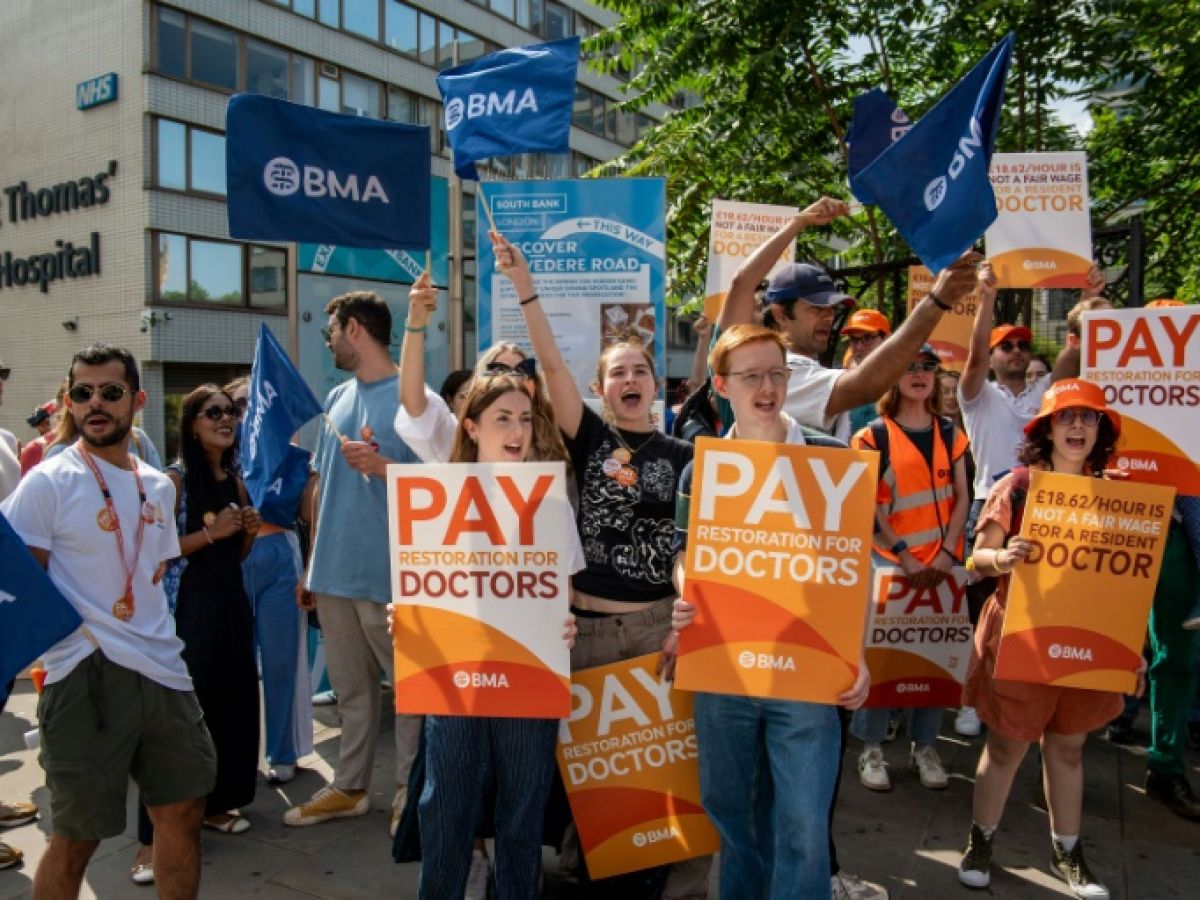Thousands of junior doctors working in hospitals across England began a five-day strike on Friday after their pay talks with Keir Starmer's Labour government failed.
The walkouts, which began at 7:00 a.m. local time (06:00 GMT), will lead to numerous cancellations of appointments in a public health system, the NHS, already plunged into a deep crisis with huge waiting lists and a hemorrhage of professionals.
In London, a handful of them gathered in the early morning outside St. Thomas' Hospital, an AFP journalist noted. "Unfair pay," "Pay the doctors," read their placards.
These same doctors had obtained in September, after a series of strikes, a salary increase of 22.3% over two years from the Labour government, which had come to power two months earlier.
In accepting the government's offer in September, the BMA claimed that doctors' salaries were "20.81t/3t behind in real terms compared to 2008".
He is demanding an additional increase of 4 pounds per hour, or 4.5 euros.
In an op-ed published Thursday evening on the Times website, Prime Minister Keir Starmer urged these doctors not to follow the "damaging path" of strike action, believing that it "will have a huge impact" on the public health system.
He also accused the BMA of "rushing" the strike, saying it was "unfair" to patients.
In another daily, the Telegraph, Health Minister Wes Streeting also attacked the union, accusing it of not having negotiated "in good faith."

These statements were refuted by the BMA, which claimed the government had every opportunity to prevent the strike.
"We are no less valuable than we were 17 years ago," the union's co-presidents said in a statement.
In January 2024, these doctors, comparable to interns in France, observed their longest strike in the history of the NHS, with six consecutive days of walkouts.

